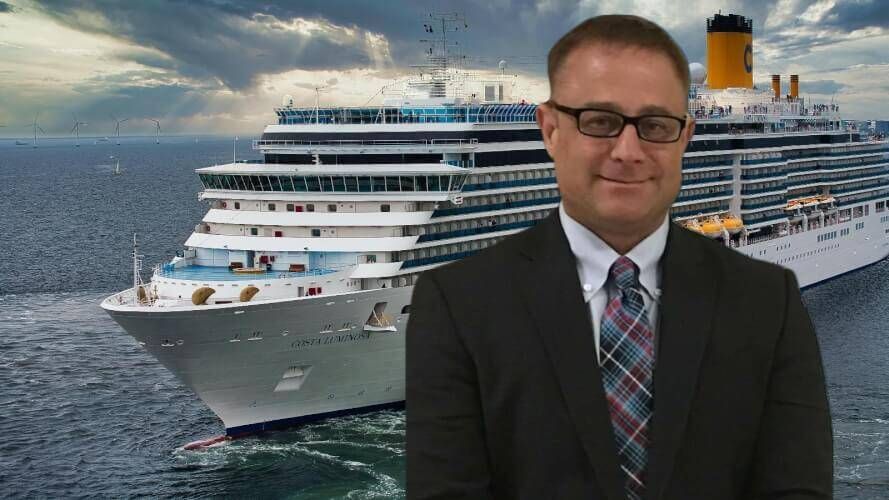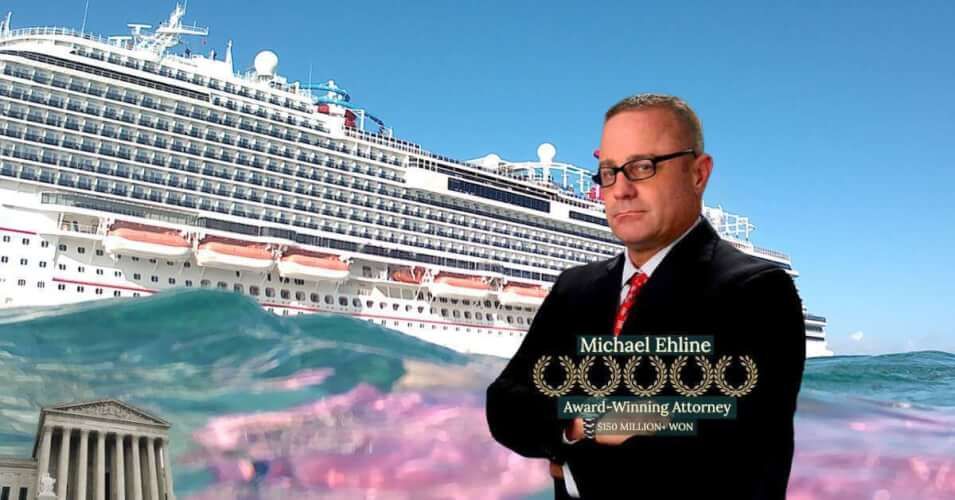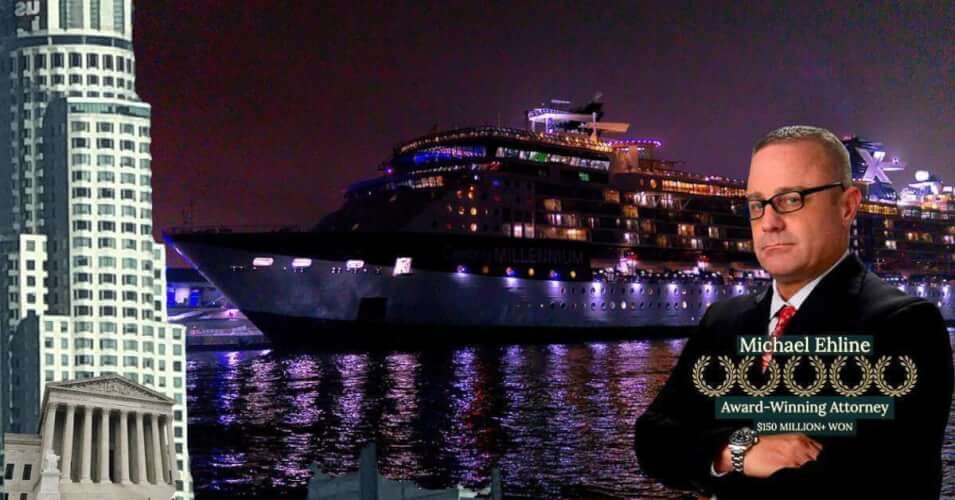Who Is My Cruise Ship Travel Ombudsman?
Missing a port due to the hurricane season or receiving lousy customer service can ruin the entire cruise experience. In such situations, cruise ship passengers must voice their concern with the cruise member, the guest services, or their travel ombudsman to address the problems.
Ehline Law and our cruise ship accident attorneys have over 15 years of experience acting as a travel “ombudsman” to injured passengers and helping them get the compensation they deserve. Here, we will go over how passengers can raise their issues and resolve their grievances following a bad cruise experience.
Who Is My Cruise Ship Travel Ombudsman?
When you have a complaint against the cruise line, you may seek compensation or resolution to help you resolve your grievances.
Whether the customer service was below par or there was a change in the cruise itinerary, reaching out to the cruise lines with formal complaints can be tiring for cruise passengers.
Suppose you’ve tried your best to communicate your concerns with the cruise line and don’t hear from them or get the positive response you’re looking for. In that case, you may want to consider launching a complaint with the Federal Maritime Commission’s Office of Consumer Affairs and Dispute Resolution Services (CADRS).
CADRS is a federal agency that acts as your travel ombudsman for complaints involving grievances against cruise lines. Many cruise lines avoid reaching out to customers, but when CADRS get involved, they ensure that the cruise line reads your complaint and reaches out to you.
Although CADRS won’t offer you the compensation you may be looking for, they are there to mediate talks between yourself and the cruise line.
What Services Does the Federal Maritime Commission CADRS Provide?
CADRS, a department of the Federal Maritime Commission, helps cruise ship passengers with problems associated with their cruise experiences. However, the department does not assist with gambling issues, safety problems, and any issues arising from travel agents.
The Federal Maritime Commission department deals with connecting passengers with the cruise lines about their grievances relating to cruise experiences for cruise ships departing from any port in the United States. CADRS does not provide assistance pertaining to cruise complaints on foreign cruises as it does not fall under their jurisdiction.
It is important to note that CADRS does not have statutory authority to force a cruise line into taking a particular action to address a complaint.
How to File Cruise Complaints with CADRS?
If you’ve had a problem with a cruise line staff or had a bad cruise experience and can’t connect with the cruise line after your trip for compensation, you should reach out to CADRS by emailing them at complaints@fmc.gov.
In your email, you should provide details about the nature of your complaint, the cruise you were on, your ticket details, and what sort of compensation you’re looking for. Send screenshots of any correspondence or evidence in the email attachment.
Handling Complaints on a Cruise
Cruise lines want the passenger’s experience to be excellent as they want them back. More loyal passengers mean big bucks for cruise companies.
Whether it is something small as a meal that is not to your liking or major issues like charges to your onboard account, water leaks in cabin rooms, missing cruise ports, or bad customer service, you should take immediate steps to notify the cruise line about it while on the cruise.
Inform the Cruise Line Staff
You must voice your concerns with the staff and let them know about your experience to initiate a dispute resolution process. Always remain calm and be polite to the staff you’re complaining about. If you’re rude and loud, the chance that the crew member would go out of their way to help you is minimal.
Allow the Cruise Ship to Make Things Right
Reach out to the crew members that could help resolve your issue. For example, if the cabin steward didn’t clean your room well after room service, you should speak to them directly.
Follow the Chain of Command
If speaking directly to the relevant cruise line staff does not make things right for you, it’s best to follow the chain of command and contact the supervisor about your complaint.
Reach out to Guest Services
For bigger problems that may take some time to resolve, it’s best to leave a complaint with guest services. They’ll hear you out and request you to write details of the nature of your complaint on the complaint card.
Follow up on Your Complaint
After you’ve filed your complaint, you must follow up with guest services the next day if they haven’t resolved your issue.
Remember, guest services might have a busy week which may explain why your complaint is taking longer than usual. Inquiring about your complaint can tell you whether they’re working towards fixing the problem or would instead propose an alternate solution.
Always be upfront with the guest services and tell them what you want. If it’s reasonable, they will most probably accommodate your request.
However, cruise lines won’t entertain unreasonable requests such as requesting a free cruise or a full refund because you didn’t like your lunch buffet or the shore excursions weren’t up to your standard.
Contact Your Travel Agent
Whether you were on a Royal Caribbean cruise or any other cruise ship, contact your travel agent, as they can provide you with the email contact of the relevant cruise line department or person to help address your concerns.
Send an Email to CADRS
If the cruise line still doesn’t respond after your emails to them, contact CADRS and file a formal complaint to help mediate.
An Attorney Is Your Travel “Ombudsman” If You’re Injured on a Mega-ship
The bigger the ship, the longer the lines snaking around activities, which can increase the risk of accidents and injuries.
Although the US Coast Guard conducts checks to ensure that the cruise ships comply with laws and regulations, they cannot help you get compensation for the injuries sustained on a cruise ship.
Cruise passengers who suffer injuries due to the negligence of the cruise ship employees must speak to our experienced personal injury attorneys.
If you’ve suffered injuries due to the negligence of cruise ship employees, contact us at (833) LETS-SUE for a free consultation, as you may be able to seek compensation.



